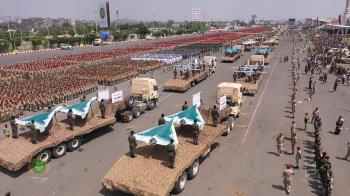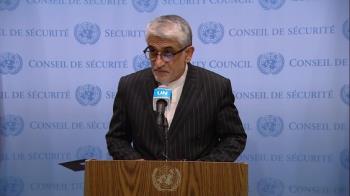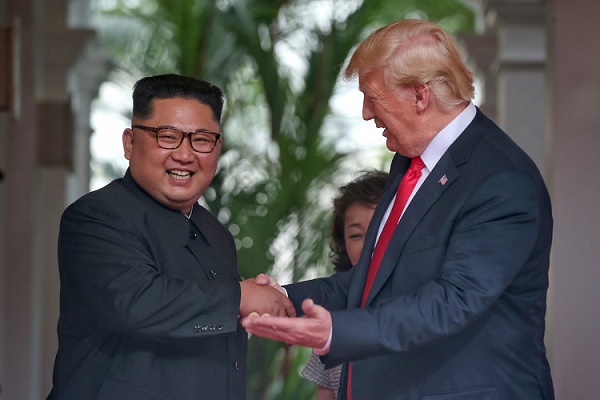Alwaght- Following a meeting that gathered the US Secretary of State and the North Korea leader’s special envoy in Washington, the White House in a Twitter post said the US President Donald Trump was expecting a second meeting with Kim Jong-un which is set to be held in late February. Some news outlets said the White House picked Vietnam for the second bilateral.
The planning for the Trump-Kim summit comes while little progress has been made in the two sides’ talks. Pyongyang protests the US decline to fulfill its promises surrounding sanctions relief and on the other side Washington casts doubt on the North’s readiness to denuclearize. Amid the atmosphere of uncertainty and exchanged distrust, what is motivating them to meet anew and launch a new round of talks?
Pyongyang-Washington talks process
After the Trump-Kim meeting on June 12, 2017, in Singapore, the two sides announced they agreed on step-by-step denuclearization of North Korea. The agreement in practice was tied to a bilateral fulfillment of commitments. Shortly before the summit, Pyongyang destroyed a nuclear test site and the US canceled planned-for-December military drills with its ally South Korea. A little later, it becomes clear Trump was not that enthusiastic for the next round of talks, something he publicized by a Twitter post.
Followed the post a rise in two sides’ distrust and anger, to an extent that the North in December rejected an offer for an unconditional meeting, possibly feeling it will represent a surrender by Kim.
The North demanded a show of good faith by the US, lifting of sanctioning, and cut of the US forces stationed in the Korean Peninsula. Now it seems that the second meeting is crucial for Trump who likely wants to assess its outcomes before taking any positive steps.
The US demand is denuclearization in the Peninsula. Heather Nauert, the State Department spokeswoman, said US policy towards North Korea has not changed, adding Trump administration wants real negotiations for a “denuclearized Korean Peninsula.”
On the other side, North Korean leader wants reliable guarantees for a full embargo relief and also wants to make sure that the nuclear disarmament will not end in broken commitment and collapse of his government. This is the most sensitive part of the talking process. So far, Washington has avoided taking the first step.
China role
A key actor in the middle of the US-North Korea tensions has been China. Along with identity bond, China is a top trade, economic, and political partner to the North. Also, Beijing took a very important role in the Korean Peninsula war in the 1950s.
Pyongyang has a role of a buffer zone between Washington and Beijing. On the one hand, Beijing does not welcome tensions as they provide the Americans with a pretext to deploy forces to the Peninsula. The Chinese leaders understand that any military escalation jeopardizes their economic interests. On the other hand, China seeks to use the crisis to its own advantage in Taiwan, the South China Sea, and economic cases. The Americans know that the North’s talks with them are almost unthinkable within Beijing’s green light. Beijing pressed Pyongyang to the negotiating table by upholding United Nations Security Council’s US-drafted resolutions.
Kim Jong-un visited China before his trip to Singapore, where he met Trump. This was the outset of the ice breaking. Now the contradiction in the Trump policy can be felt better as why Trump abruptly announces Syria withdrawal and says he is not in a hurry to settle North Korea crisis despite heavily focusing on it. In fact, Washington exploits the Peninsula crisis to dispatch forces for a broader aim of foiling Beijing’s ambitions in the South China Sea.
After the recent impasse, it was again China that mediated. Before recent talks for the second round, Kim paid a surprise visit to China. It looks that North Korean leaderfind will set hopes on China’s security guarantees rather than the US’s. So, the Chinese role in the upcoming talks is decisive.
Russia and North Korea
Like China, Russia dislikes seeing US forces amassment in the region under the cover of support to its allies. Moscow finds US military presence in the Peninsula, bordering eastern Russia and mainly Primorsky Krai province, a threat.
The US uses the Peninsula crisis to both satisfy its allies Japan and South Korea and put strategic pressure on China and Russia. Trump’s national security document, published in 2017, highlights China, Russia, and North Korea threats to the US. This drives Beijing and Moscow to take the initiative in the region’s crisis. After all, they share security and strategic interests equally and view Washington’s military presence a risk.
China and Russia drafted a joint resolution asking for relief to anti-Pyongyang sanctions. China, Russia, and North Korea met in October 2018 in Moscow, discussing sanctions removal. Last year, Russia lonely vetoed an anti-North resolution. The Russian President Vladimir Putin massively attempts to get Kim to visit Moscow before meeting Trump in Vietnam. The Russian media say he accepted a Putin invitation but a date is yet to be set. A pure reliance on China can tie Kim’s hands and compromise his independence of action but a balanced relationship with two UNSC powers with shared security and geographical interests is more favorable to the leader. The US, however, wants to hamper the Russian role and restrict it to showing a green light to a Washington-favored settlement. Russian ambassador to North Korea Alexander Matsegora, last week rejected the US claim that Pyongyang obtained the Russian missiles and air defenses technologies, saying the American allegations were meant to discredit Moscow.
Patrick Shanahan, acting Secretary of Defense, said the North’s missile program is still a “significant concern.” A large part of Trump’s Peninsula crisis settlement efforts is a propagandistic show meant to de-Obamize the “pivot to East” policy for the output to be used for the 2020 election to his advantage.
The US does not want a definite solution to North Korea crisis, something expected to impact February talks. Each side struggles for further privileges, while China’s role will significantly determine the Vietnam meeting’s outcome. If Washington presses ahead with anti-Moscow and Beijing threats, China and Russia will boost trilateral talks with Pyongyang to restrain the US in the Peninsula.



























